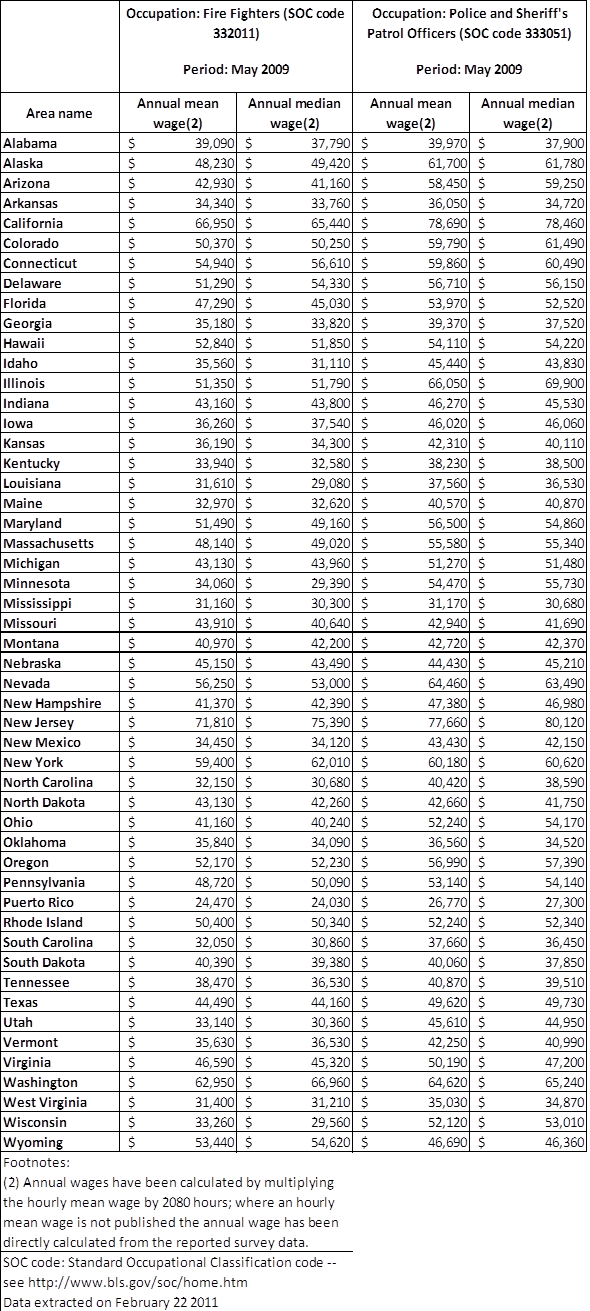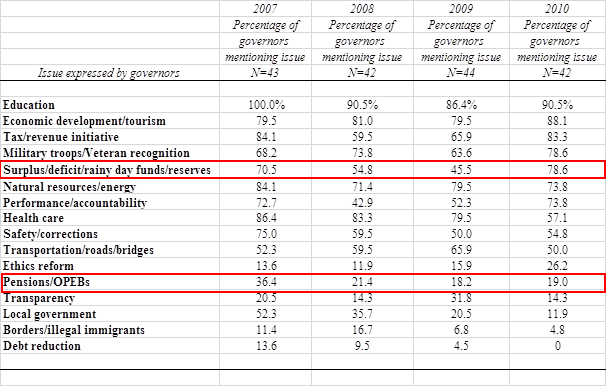Having gotten curious about the situation in Wisconsin, I decided to see what data I could pull to get a feel for the size and scope of the problem. First up, a look at union membership in the state, via BLS.gov:
Source: Union affiliation of employed wage and salary workers by state, BLS.gov
The trend is clear: “Members of Unions” has declined from 456,000 to 355,000 from 2000 to 2010, as the percentage of employed who are members of unions has declined from 17.8% to 14.2%. Note that the table does not represent solely public employees — it represents the entire work force of the state, both public and private, which is to say the problem Governor Walker is targeting is some fraction of the “Members Of” or “Represented By” Unions.
Via another BLS database (a bit dated, but it’s the most recent available and likely close enough to current numbers for discussion purposes), I thought it would be interesting to see who’s actually breaking the bank in Wisconsin. So I pulled a group of occupations that I’d consider “the usual suspects” — teachers, fire fighters, police, librarians — and compared mean and median annual wages for those jobs in Wisconsin versus the United States as a whole. Lo and behold, it appears we might lay blame for the crisis at the feet of Wisconsin’s Teacher Assistants, who are pulling down, on average (not median), $240 more than the $24,280 being paid to their counterparts in other states. I’ve highlighted in green the wages in Wisconsin that are higher than those with the same occupation in other states; it occurs in 3 of 16 potential possibilities.
(Click through for larger image.)
Source: BLS.gov
(Note: It should go without saying that this raw data does nothing to account for cost of living differences in various parts of the country.)
I could add to the list — drop other potential culprits in comments — but figured I’d start with the most egregiously greedy bastards who came immediately to mind.
For the record, here’s a complete list of what we pay our police and fire fighters nationwide. If we are to have an honest debate about what folks are paid and what benefits they should (or should not) receive, we owe it to ourselves to at least start with some facts, and I’d suggest what appears below is the bare-bones minimum. Wisconsin is 21st in Patrol Officer pay and 43rd in Fire Fighter pay nationwide.
Finally, I’d dare say that this budgetary problem seems to have crept up and taken most governors by surprise, as evidenced by the fact that references to it (in State of the State speeches) skyrocketed over the course of one short year, going from only 20 mentions (of 44 speeches) to 33 (of 42 speeches) from 2009 to 2010. Even fewer — far fewer — have been mentioning “Pensions/OPEBs” (Other Post-Employment Benefits). Have they just not been paying attention? If I didn’t know better, I’d swear it smells a bit political.
Source: The Council of State Governments
For an interesting look at state government compensation by state and branch, see here (pdf).
And for an outstanding look at state-by-state budgets, see here (pdf) — this is an excellent piece that I only found this morning and am still exploring. It is a veritable treasure trove of budget data by state nationwide.
More on this file as time allows.
Adding: I appreciate the thoughtful commentary on both sides. I intend to further explore many of the comments that have been made.






What's been said:
Discussions found on the web: